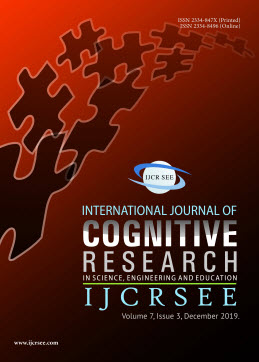DIDACTIC TRENDS AND PERCEIVED TEACHERS’ TRAINING NEEDS IN HIGHER EDUCATION: A CASE STUDY
DIDACTIC TRENDS AND PERCEIVED TEACHERS’ TRAINING NEEDS IN HIGHER EDUCATION: A CASE STUDY
Author(s): Adolfo Bautista Cremadez, Marisol E. CipagautaSubject(s): Higher Education
Published by: Удружење за развој науке, инжењерства и образовања
Keywords: educational innovation; didactic trends; higher education; innovative practices;teachers training;
Summary/Abstract: Today’s world requires people who manage their learning and professional updating processes, which claims for a change in educational practices in all levels of education. However, in Higher Education, this transformation relies mostly on teacher’s efforts to innovate within the learning environments, requiring institutional efforts to generate strategies towards educational innovation. This paper presents the analysis of didactic trends and training needs of teachers at UNIMINUTO Colombia, based on the data gathered at the Annual Meetings for Innovative Pedagogical Practices and an additional survey applied on-line, to determine teachers’ training needs and, furthermore, institutional strategies to strengthen the teaching-learning process. The study uses a mixed methodology through a concurrent triangulation design with qualitative and quantitative methods, with an exploratory scope; both quantitative and qualitative parts of the study counted on a voluntary sampling method. Trend analysis shows that the most used didactic methods are Project-Based learning, Research-Based Learning, and Collaborative Learning. However, the analysis of teachers’ appropriation of knowledge about didactics, especially on those strategies, is low or basic, which compared to the training needs expressed by teachers demonstrate that training processes in educational innovation and new teaching methods is crucial to help educational innovation initiatives to evolve. The study stablishes a trend towards the use active-learning methodologies in pedagogical practices, highlighting the necessity of teachers’ training in how and when to use them, and setting the importance of including communication skills as a topic in teachers’ training programs.
Journal: International Journal of Cognitive Research in Science, Engineering and Education (IJCRSEE)
- Issue Year: 7/2019
- Issue No: 3
- Page Range: 71-85
- Page Count: 15
- Language: English

